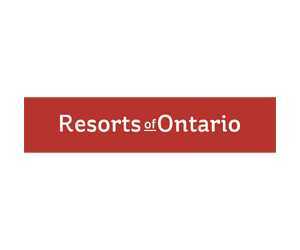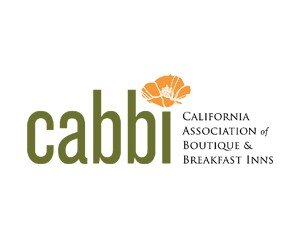Slashing room rates can feel like an obvious and easy solution to a decline in bookings. However, your marketing strategy should not appear obvious or easy. Low prices invite the idea ‘you get what you pay for’ and discounted rates can indicate a hotel-in-trouble. For many, price determines quality, and price is likely to determine a potential guest’s first reaction to your hotel. If rates were the only factor in selling a room, the hotels with the lowest rates would always be fully occupied. So, while discounts may lead to some short-term bookings, they rarely lead to the long term goal of establishing a sustainable and flourishing business. But the question is: how do you sell rooms without slashing rates?
1. Be Distinct.
It’s laughably obvious, and of course, what everyone and every business desires to be. But it’s worthwhile to spend time and repeatedly revisit the following questions: What makes you different than other hotels, inns, and B&Bs in your area? Why should someone book with you instead of with the hotel down the street? Who are your ideal guests? What do they value? Be specific. You cannot build a successful marketing strategy without understanding who you are. Get out a piece of paper and jot down ideas. If your hotel’s unique qualities and distinct assets do not come quickly to mind, this is where you need to spend time and energy because the following pieces of advice rely on your answers to these questions.
2. Add Value.
Instead of discounting prices, maintain your rates and add services and products. Your potential guests will perceive and then receive increased value, which not only sells rooms but strengthens your brand by providing another opportunity to highlight your assets.
Add value in two ways:
Offer hotel products, amenities, or services. Consider offering unlimited access to your onsite gym, a complimentary massage at your spa, free laundry services for business travellers, or whatever services or products that make your hotel unique. This takes some creative thinking, as you want to ensure you’re offering something that your guests find valuable but also keeps costs low.
Collaborate with local businesses. Approach restaurants and music venues to offer a combined price for a night or weekend away. Collaborate with museums to bring out-of-towns guests to see the opening or closing of an exhibit. Create packages with sports teams or theatre companies that offer season passes that would bring guests back multiple times a year. Understand what experiences your ideal guests desire and work with local businesses to offer mutually beneficial packages.
3. Enhance your Online Presence.
Website. Your property’s website is vital. It offers a powerful first look at your hotel and should immediately present the feel of your establishment. Your website should make someone want to stay at your hotel. Currently, minimalism is the trend for websites, which is particularly effective for hotels because it gives a clean and calming impression. It’s important to understand that a website should be updated regularly, not just for its content but to keep it looking fresh and modern. This is especially important if your brand incorporates these traits. A website should be easy to navigate, responsive (so that it can be viewed on every possible screen), feature high quality images, and offer information that’s readable and concise. It’s recommended that you hire a professional. A good website designer, writer, and developer can help you tell your brand’s story through images and concise words, and can also ensure that your website is easily found through online searches.
Hotel Rating Websites. Websites like TripAdvisor have become a necessity… and a thorn in the side of many service oriented businesses, even the ones who consistently get good reviews. You cannot stop people from posting negative reviews, but you can respond to them, giving potential guests an opportunity to see how you resolve issues. Here’s a helpful guide to maintaining online reputation.
Social Media. Social media is a good medium for showcasing your carefully curated packages, but mostly it’s a storytelling platform. Many modern travellers seek individualized experiences, and one way to show that you can fulfil their desires for individuality is to be unique yourself. Tell and show the behind the scene stories of your hotel through original photographs; highlight the people who work for you or the people who stay with you (with their permission); and feature your surrounding area’s attractions. Remember, too, that social media is meant to be social. Don’t focus solely on presenting your story. Interact with other businesses and members of your community; engage with former and potential future guests; and respond quickly to requests.
Cultivate Repeat Business. It’s easier to encourage repeat guests than to attract new ones. To do so: think small. Small gestures have a big impact. Ensure the front desk staff know and address repeat customers by name. Walk around at breakfast and briefly chat with guests about how their enjoying their stay. Send handwritten thank you notes and birthday cards. Offer complimentary champagne upon the arrival of a repeat guest. Also, consider starting a customer loyalty program based on the number of nights booked or referrals made.
Empower your Staff. While their main role is not to sell rooms (although staff members are potentially your hotel’s greatest ambassadors), they can upsell. Whenever the opportunity arises, your front desk staff should have the knowledge and freedom to offer room upgrades – the suite with the oceanfront view, the room with the king size bed or garden terrace – for a suitably enticing price.
Welcome Pets. More and more people desire to travel with their pets, especially dogs. This is particularly important for guests travelling within a 300-kilometre radius. These are the clientele who are most willing to pick-up-and-go for a weekend (or even mid-week) getaway, and they’re more likely to embrace spontaneity if they do not have the added complication of finding care for their four-legged family members. Need more incentive? It’s likely you can charge extra for a pet-friendly room. Here are some considerations for accepting four-legged guests.
Offer Discounts when Appropriate. Discounts have a time and place, but they should be offered for a reason. Guests become irritated when they discover that they could have found a reduced rate through another website or if they had waited longer to book. However, there are ways to offer discounts fairly and effectively. Consider offering discounted rooms for extended stays, for repeat customers, and for referrals.
If you offer discounts too frequently and without a specific purpose, you run the risk of having discounted room rates become your regular rates, which means your revenues will decrease, you will no longer be able to offer a high level of service, potentially driving away repeat customers. It’s a trajectory you do not want to instigate. When facing a slump, it’s natural to think ‘let’s try lowering prices,’ especially if other hotels are doing so. However, it’s best to maintain your rates, maintain your service, and return to the foundational questions: Who are you as a brand? What do you do well? Who are your ideal guests? What do they most desire? The answers to these questions will help you build packages, market your assets, tweak services, enhance communication with the public, and ultimately, sell rooms without slashing prices.




























